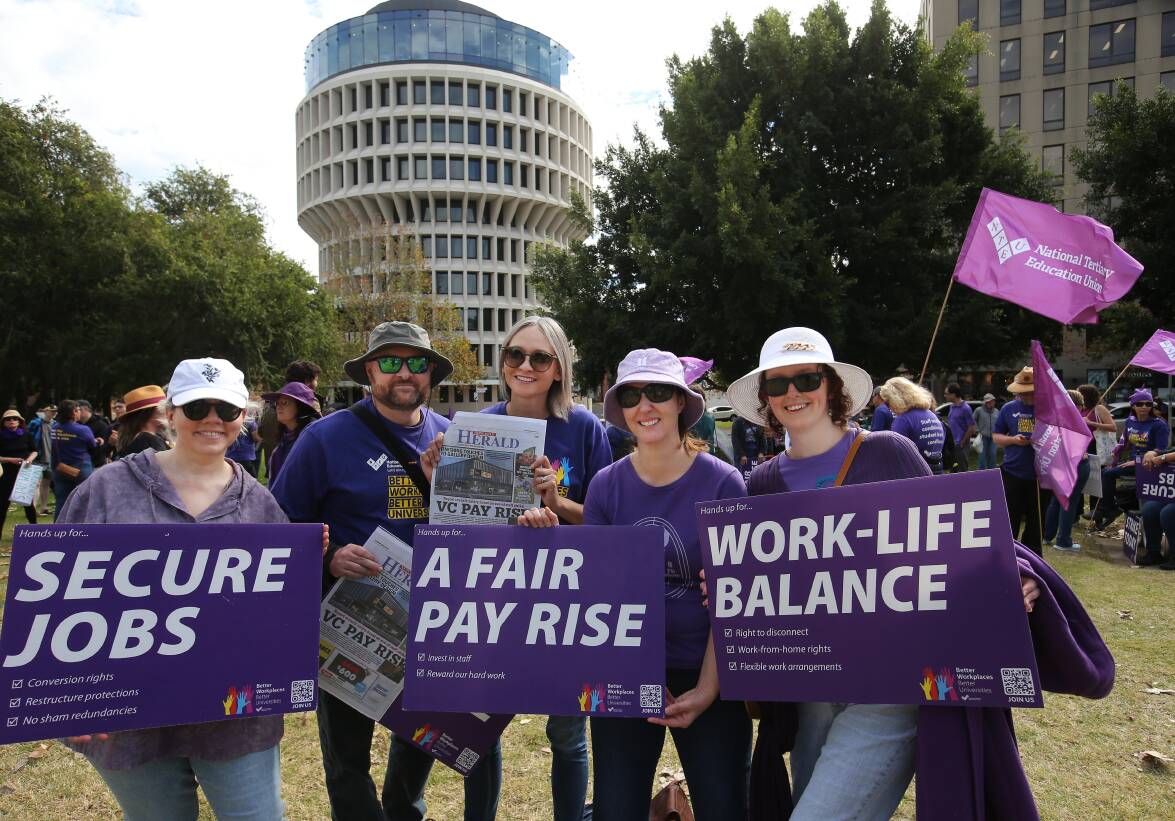The academics union dropped a claim for superannuation equity for casual staff when it reached an in-principle agreement with University of Newcastle management on a new industrial agreement.
The Newcastle Herald reported on Saturday that the negotiating team for the National Tertiary Education Union, which represents academic and administration staff, had agreed in principle to a new enterprise bargaining agreement after a week of talks in the Fair Work Commission.
The proposed agreement includes a 13 per cent pay rise over three years.
The NTEU had hoped to increase casuals' super guarantee payments from 10.5 per cent to 17 per cent to match the benefits of permanent staff, but the proposed deal does not include this provision.
NTEU Newcastle branch president associate professor Terry Summers said on Tuesday that the commission had advised the union negotiators they were "extremely unlikely" to win super parity for casuals.
"The university wouldn't move on super, and the Fair Work deputy president didn't believe that we'd have a chance of getting that past him or whoever it went past in arbitration," he said.

Associate professor Summers said the in-principle agreement included extra conditions to improve equity for casuals, including conversion provisions, parental leave and 14 new permanent positions.
He said the deal included a new clause "we can live with" governing academic workload, another key issue arising from almost two years of negotiations.
"Essentially academics have to be able to do the work in the time that is allocated. Currently our agreement didn't kind of say that."
The long-running dispute landed in the commission late last month after NTEU members overwhelmingly rejected the university's latest proposal.
University staff covered by the Community and Public Sector Union endorsed the proposal, and the union later criticised the NTEU for prolonging the dispute.
Associate professor Summers recommended union members then staff as a whole vote in favour of the new proposal in the coming weeks.
"The pay, while not keeping up with CPI or anywhere near it, is pretty good compared with the rest of the sector," he said.
"The level of casualisation we've got at Newcastle will be pretty good when compared with the sector."
He said members would be "well advised" not to chase equal super for casuals given the advice of the commission.
"I think we've got a result which is as good as we would have got under the circumstances."
Academic Tony Brown, who referred the matter to the commission last month on behalf of casual staff before university management followed suit, said the industrial negotiations had been a "testing time for all parties".
"I commend the local NTEU members and delegates who prioritised addressing the significant unfairness and inequities confronting their precariously employed UoN long-term casual colleagues over their personal monetary gains," Dr Brown said in a statement.
"Enterprise agreements are much more than black-letter law. They also reflect the dominant workplace culture and leadership models.
"I would respectfully encourage UoN's top body, its council, to focus on urgently building essential trust through a more collaborative and inclusive approach to modern innovative workplace relations practices and transformational leadership, not one that focuses upon its staff as costs of production."







